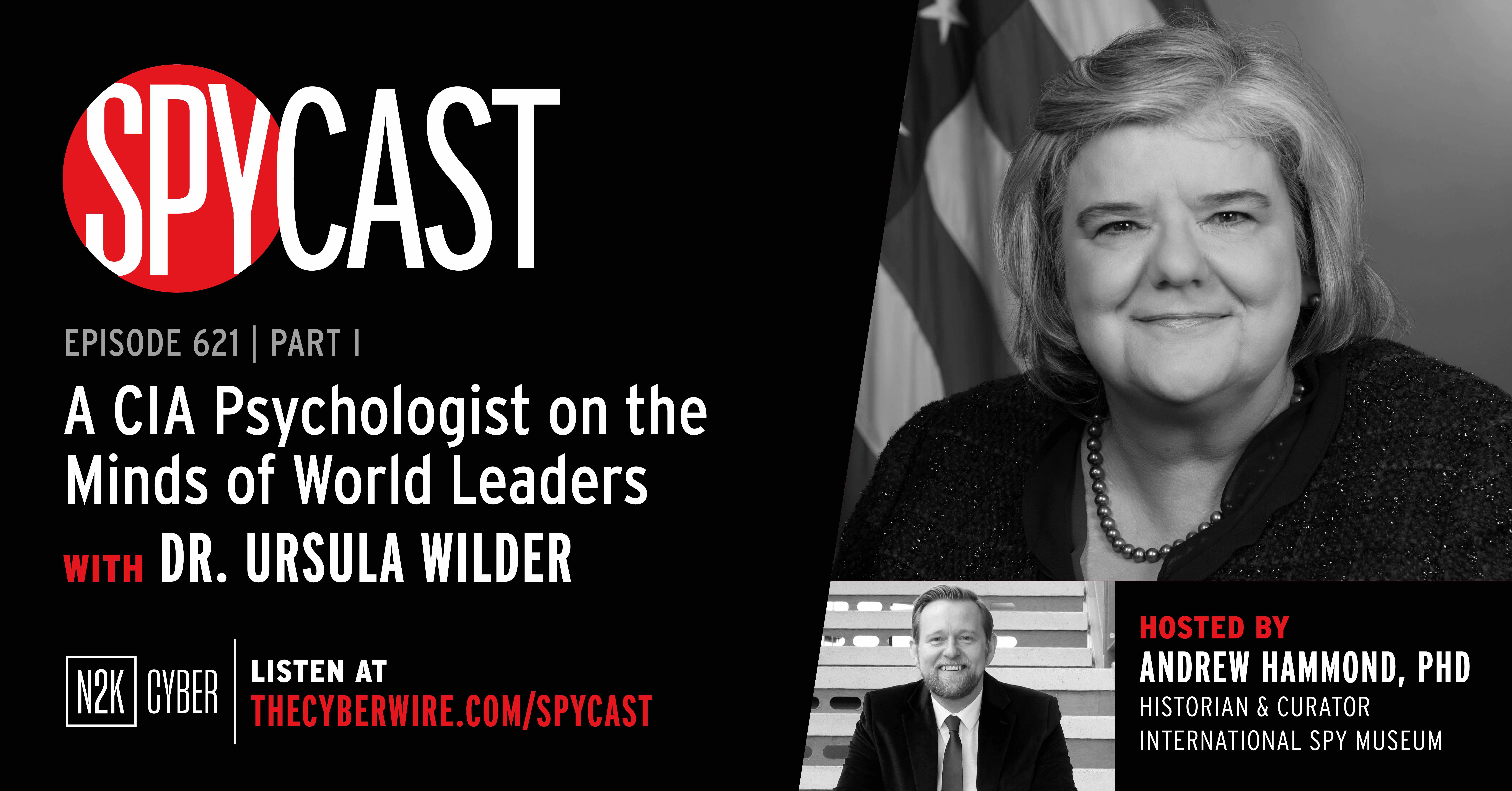
A CIA Psychologist on the Minds of World Leaders, Pt. 1 with Dr. Ursula Wilder
Summary
Dr. Ursula Wilder (LinkedIn) joins Andrew (X; LinkedIn) to discuss the intersections between psychology and intelligence. Ursula is a clinical psychologist with over two decades of experience working at the Central Intelligence Agency.
What You’ll Learn
Intelligence
- How psychology can be useful to national security
- Historical examples of leadership analysis
- Leadership personality assessments & the Cuban Missile Crisis
- Psychoanalytic theory and espionage
Reflections
- Human nature throughout history
- History repeating itself
And much, much more …
Episode Notes
This week, Andrew is joined by Dr. Ursula Wilder, a clinical psychologist for the CIA. In this episode, Andrew and Ursula discuss the psychological profiles of historical world leaders, and why this type of work is critical to national defense. How does psychology relate to intelligence, and how do intelligence agencies use this information to advance their national security interests? Tune in to find out.
Dr. Ursula Wilder has worked within the Central Intelligence Agency for over 27 years. In addition to her career with the CIA, Ursula has served as a Clinical Psychologist at the University of Hong Kong, a Federal Executive Fellow at The Brookings Institution, and as an Adjunct Professor at the Elliott School of International Affairs at The George Washington University.
This episode is Part 1 of a 2-episode series. Stay tuned for Part 2 next week!
And…
Although the formal academic and scientific study of psychology largely began in mid-19th century Europe, the interest in understanding the human mind and the practice of informal psychoanalysis has ancient roots across the world. To learn more about global ideas of the mind from ancient China, Egypt, and Mesopotamia, check out this article.
Quotes of the Week
“Together, these documents are quite powerful. The psych assessments are very, very carefully, tightly held and are classified at a high level. Every intelligence officer has this fantasy about seeing the file that's kept on them by the opponents.” – Dr. Ursula Wilder.
Resources
SURFACE SKIM
*SpyCasts*
- Agent of Betrayal, FBI Spy Robert Hanssen with CBS’ Major Garrett and Friends (2023)
- The North Korean Defector with Former DPRK Agent Kim, Hyun Woo (2023)
- SPY@20 – “The Spy of the Century” with Curators Alexis and Andrew on Kim Philby (2022)
- “How Spies Think” – 10 Lessons in Intelligence with Sir David Omand (2020)
*Beginner Resources*
- What is Psychoanalysis? Institute of Psychoanalysis, YouTube (2011) [3 min. video]
- Psychologists in the CIA, American Psychological Association (2002) [Short article]
- 7 Reasons to Study Psychology, University of Toronto (n.d.) [Short article]
DEEPER DIVE
Books
- Freud and Beyond, S. A. Mitchell (Basic Books, 2016)
- Narcissism and Politics: Dreams of Glory, J. M. Post (Cambridge University Press, 2014)
- The True Believer: Thoughts on the Nature of Mass Movements, E. Hoffer (Harper Perennial Modern Classics, 2010)
- Team of Rivals: The Political Genius of Abraham Lincoln, D. K. Goodwin (Simon & Schuster, 2004)
- Leaders, Fools, and Impostors: Essays on the Psychology of Leadership, M. F. R. Kets de Vries (iUniverse, 2003)
Articles
- What We Can Learn from Abraham Lincoln’s Struggle with Depression, R. Barlow, BU Today (2023)
- An Overview of Sigmund Freud's Theories, K. Cherry, VeryWell Mind (2022)
- Jerrold Post: One of the CIA’s truly great innovators, B. Riedel, Brookings Institution (2020)
- The Psychology of Espionage, U. M. Wilder, Studies in Intelligence (2017)
- Jung’s “Psychology with the Psyche” and the Behavioral Sciences, R. A. Jones, Journal of Behavioral Sciences (2013)
- Inside the Mind of the Spy: Agents Struggle in the Shadows, U. M. Wilder, Brookings Institution (2012)
Video
- The Psychological Assessment of Political Leaders, C-SPAN (2003)
Primary Sources
- Charles de Gaulle to Pamela Digby Churchill (1942)
- Blood, Toil, Tears and Sweat (1940)
- Memoirs of Ulysses S. Grant (1885)
- Gettysburg Address (1863)
- House Divided Speech (1858)
- Excerpt on Cleopatra from Plutarch's Life of Julius Caesar (ca. 2nd century AD)
- Plutarch’s The Life of Alexander (ca. 2nd century AD)
- Appian’s The Civil Wars (ca. 2nd century AD)
- Virgil’s The Aeneid (19 B.C.E)
*Wildcard Resource*
- On Dreams by Sigmund Freud (1901)
- In this simplified version of the father of psychoanalysis’ seminal book The Interpretation of Dreams, you can get a small taste for Freudian philosophy. Freud believed that dreams were a reflection of the subconscious mind and that studying a person’s dreams can elucidate their inner wants and needs. What are your dreams telling you?


